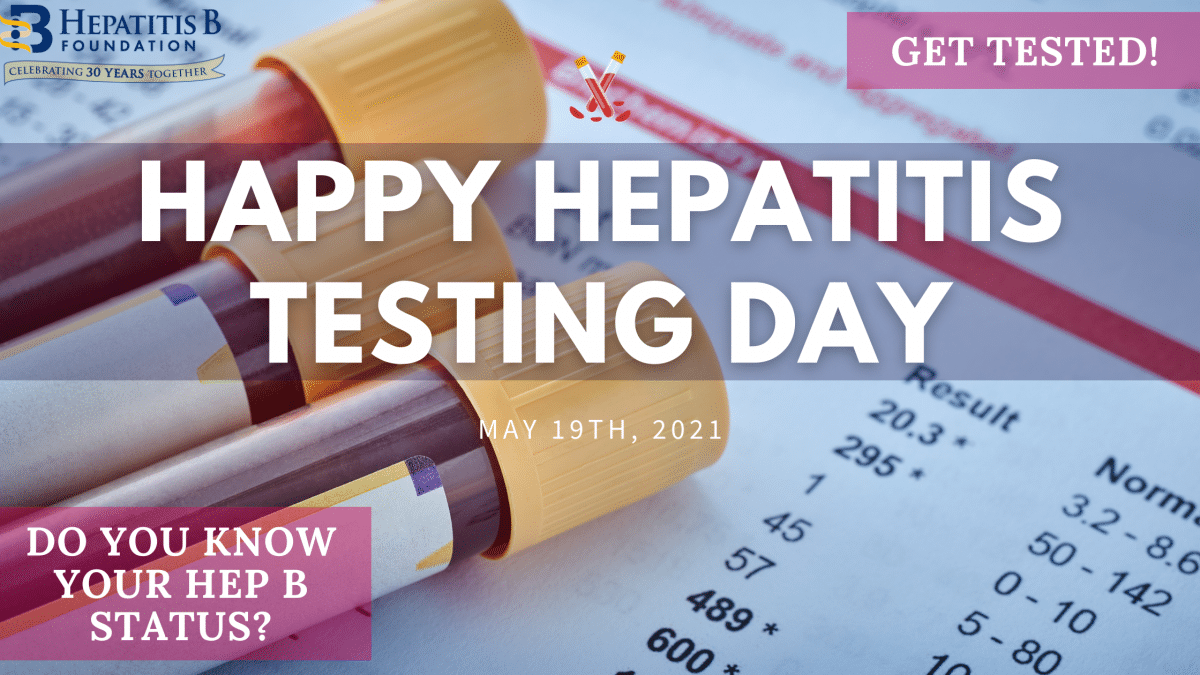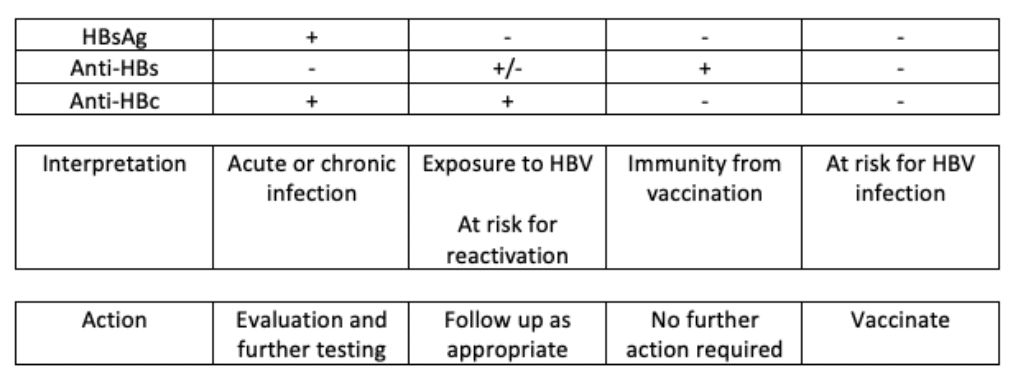
May 19th is national Hepatitis Testing Day! Today we raise awareness about viral hepatitis and encourage people to know their status. More than half of the people living with viral hepatitis in the U.S. do not know their status, so if you do not know your status, get tested!
Since 2013, the United States has officially observed May 19th as Hepatitis Testing Day. With over 2.4 million people living with chronic hepatitis B in the United States and 300 million people living with it globally, it is so important to know your status! Additionally, hepatitis B is known as a “silent infection” which means that you do not know you have the disease until it has done major damage to your liver. Luckily, with hepatitis B testing, you can find out your status and take control of your health!
Hepatitis B Testing
The hepatitis B test is a simple blood test that can be done at your doctor’s office or local care clinic. The hepatitis B blood test requires only one sample of blood and your health care provider should order the “Hepatitis B Panel,” which includes three parts. You and your health care provider will need to know all three test results in order to fully understand whether you are infected, protected or still at risk for a hepatitis B infection. Remember to ask for a copy of your hepatitis B blood test results so that you fully understand which tests are positive or negative.
Interpreting Results
Your results should include HBsAg (hepatitis B surface antigen), HBsAb (hepatitis B surface antibody), and HBcAb (hepatitis B core antibody). Below is a chart to help you interpret your results!

Newly Diagnosed
Here are some next steps if you have received your test results and tested positive for hepatitis B. The first thing you should know is that you can live a long and healthy life.
Next Steps:
- Understand your diagnosis. Do you have an acute or chronic infection? When someone is first infected with hepatitis B, it is considered an acute infection. Most healthy adults who are acutely infected are able to get rid of the virus on their own. If you continue to test positive for hepatitis B after 6 months, it is considered a chronic infection. Knowing whether your hepatitis B is acute or chronic will help you and your doctor determine your next steps. If you are unsure of what your blood test results mean, you may find Understanding Your Blood Tests helpful.
- Prevent the Spread to Others. Hepatitis B can be transmitted to others through blood and bodily fluids, but there is a safe and effective vaccine that can protect your loved ones from hepatitis B. You should also be aware of how to protect your loved ones to avoid passing the infection to family and household members and sexual partners.
- Find a Physician. If you have been diagnosed with chronic hepatitis B, it is important to find a doctor that has expertise in treating liver disease. We maintain a searchable physician directory database to help you find a liver specialist near you.
- Educate Yourself. Get the facts about hepatitis B, including what it is, who gets it, and possible symptoms, starting with What is Hepatitis B.
- Seek Support. It might be helpful to you if you seek community support. You can join Hep B Community, an online global forum dedicated to supporting people affected by hepatitis B. The Hepatitis B Foundation also lists more support groups you can check out here .
Author: Evangeline Wang
Contact Information: info@hepb.org

